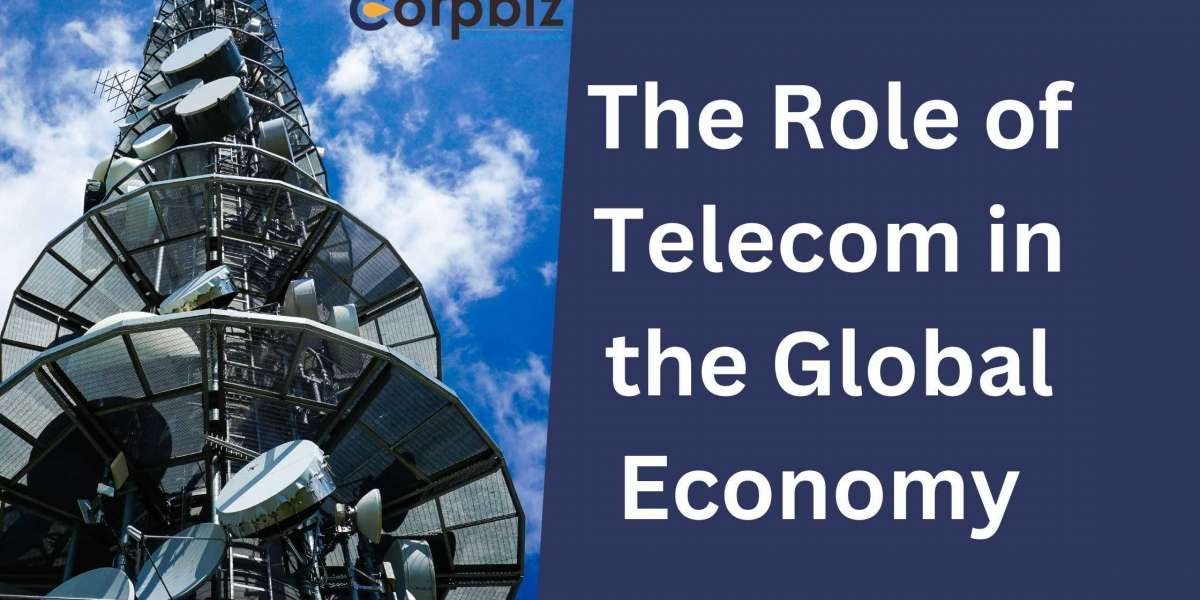Telecommunication, or telecom, plays a vital role in connecting people, businesses, and governments worldwide. From mobile phones to the internet, telecom enables the exchange of information, services, and ideas in a way that has revolutionized economies. In this blog, we will explore how the telecom industry influences the global economy and the important certifications and licenses that ensure its smooth operation.
The Backbone of Global Communication
In today’s fast-paced world, telecom provides the foundation for most communication, whether it's through mobile networks, broadband internet, or satellite systems. Businesses, governments, and individuals rely on telecom to stay connected, conduct transactions, and access information. With telecom networks reaching all corners of the globe, this sector has become a major driver of economic growth and innovation.
Facilitating Trade and Business
Telecom is central to global trade. It allows companies to communicate with suppliers and customers across the world, manage supply chains, and provide services to clients in different countries. For example, e-commerce companies like Amazon and Alibaba heavily depend on robust telecom networks to operate their businesses. Without strong telecom infrastructure, international business transactions and operations would be much more difficult, slowing down economic growth.
In addition to traditional communication, telecom has played a key role in enabling new technologies such as cloud computing, big data, and the Internet of Things (IoT). These technologies allow businesses to work more efficiently, develop new products, and expand their reach into new markets.
Connecting People and Empowering Education
Telecom services also have a profound impact on society. The widespread availability of mobile phones and internet access has transformed the way people live and work. In remote areas, where traditional infrastructure is limited, telecom networks provide access to essential services like education, healthcare, and government programs.
For instance, online education platforms have become widely available, allowing students from various parts of the world to learn from prestigious institutions. In regions with limited access to schools, students can use mobile phones or the internet to study and improve their skills, ultimately contributing to a more educated workforce.
Ensuring Telecom Compliance: Key Certifications and Licenses
To operate smoothly in a global economy, telecom companies must comply with various regulations and obtain necessary certifications and licenses. This ensures the safety, reliability, and quality of telecom services. Some of the most important certifications and licenses include:
- Unified Access Service License (UASL): This unified access service license is essential for telecom operators, as it allows them to offer services like fixed-line, mobile, and broadband internet. In India, UASL is crucial for businesses looking to expand their telecom offerings nationwide.
- FCC Certification: The FCC certification is required for telecom equipment to be used in the United States. This certification ensures that products meet specific standards for safety, electromagnetic compatibility, and radio frequency interference, which helps maintain the integrity of telecom services.
- UL Certification in India: Underwriters Laboratories (UL) certification ensures that telecom products meet safety standards, especially for electronic devices like phones, routers, and other telecom equipment. In India, UL certification is required for many telecom devices to ensure they are safe to use in the local market.
- WPC Certification Services: The Wireless Planning Coordination (WPC) certification is mandatory for telecom companies in India to ensure that devices using wireless technology, like mobile phones and radio devices, are compliant with local regulations. WPC certification helps avoid interference with other communication channels and ensures the efficient use of the radio spectrum.
The Future of Telecom and Its Impact on the Global Economy
As technology continues to evolve, the role of telecom in the global economy will only grow. The rollout of 5G networks, for example, promises to transform industries like healthcare, transportation, and entertainment by providing faster and more reliable internet connections. Telecom will continue to be a driving force behind new innovations, enabling smart cities, autonomous vehicles, and advanced healthcare solutions.
In addition, telecom’s influence on global trade and communication will likely increase with the rise of emerging technologies such as artificial intelligence, blockchain, and quantum computing. These advancements will further reshape the way businesses operate, increasing productivity, and creating new opportunities for growth.
Conclusion
Telecom is more than just a service; it’s a crucial pillar of the global economy. It connects people, drives innovation, and helps businesses operate efficiently across borders. With the proper licenses and certifications, such as the Unified Access Service License (UASL), FCC certification, UL certification in India, and WPC certification services, telecom companies can provide reliable and safe services that benefit everyone.
As the telecom industry continues to grow and evolve, it will undoubtedly remain an essential part of our interconnected world, paving the way for a more prosperous global economy.
FAQs: The Role of Telecom in the Global Economy
- What is the Unified Access Service License (UASL)?
The Unified Access Service License (UASL) is a license granted by the Indian government that allows telecom operators to provide a wide range of services such as fixed-line, mobile, and broadband internet across the country.
- Why is FCC certification important for telecom products?
FCC (Federal Communications Commission) certification is essential for telecom products that will be sold or used in the United States. It ensures that electronic devices, including mobile phones and network equipment, meet safety standards and do not cause harmful interference with other communication devices.
- What does UL certification mean for telecom equipment in India?
UL (Underwriters Laboratories) certification in India ensures that telecom equipment, such as mobile phones, routers, and other electronic devices, meet the required safety standards.
- What is the role of WPC certification in telecom?
The Wireless Planning Coordination (WPC) certification is required for telecom devices that use wireless technologies, such as mobile phones, radio equipment, and wireless routers, in India.
- How does telecom impact global trade?
Telecom plays a key role in global trade by enabling businesses to communicate with suppliers, clients, and partners worldwide. It helps manage supply chains, deliver services, and carry out international transactions.
Source: https://businespoint.com/the-role-of-telecom-in-the-global-economy/














